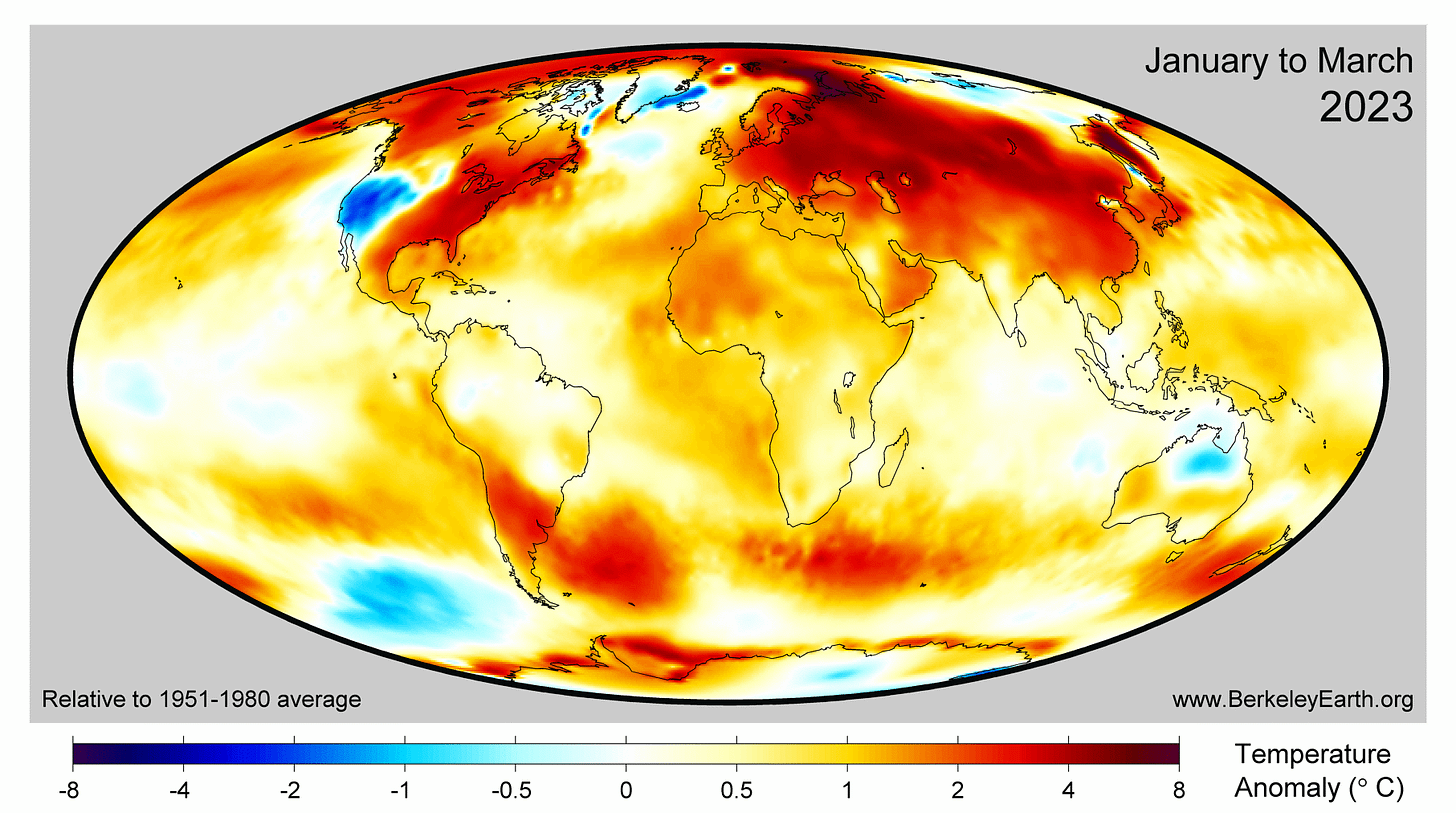
Multiple wildfires ignited last week in Quebec, perhaps sparked by lightning, sending smoky air to the East Coast of the US. Numerous fires were already burning in Western Canada and generating large smoke plumes.

Here are three quick thoughts on the fires and their effects on this side of the border. (It's the last week of classes here at UC Davis, so no time for a regular Ag Data News article this week.)
1. Crop yields may go up or down.
Light smoke plumes are relatively common in the cornbelt, averaging 30 days per year. However, heavy plumes are much rarer. This World Bank working paper by Patrick Behrer and Sherrie Wang estimates the effects of smoke plumes on corn and soybean yields.
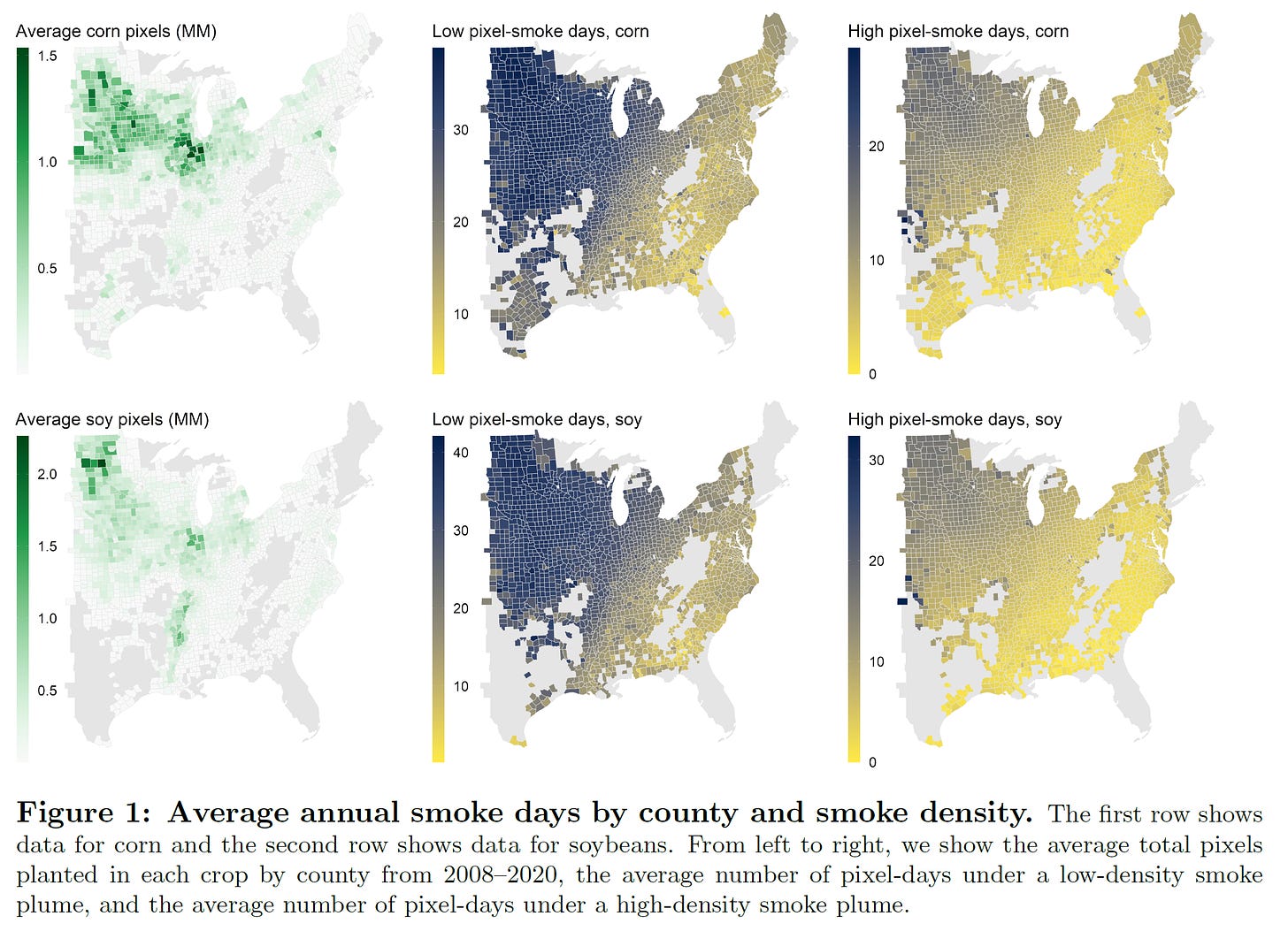
Crops grow best when there are high levels of diffuse solar radiation. Smoke has two offsetting effects on crop yields; it decreases total radiation (bad for yield) while increasing the fraction of radiation that is diffuse (good for yield). Behrer and Wang find that light plumes increase yield, while heavy plumes decrease yield.
The average effects are moderate, but if heavy smoke were to sit over the cornbelt, it would noticeably decrease yield.
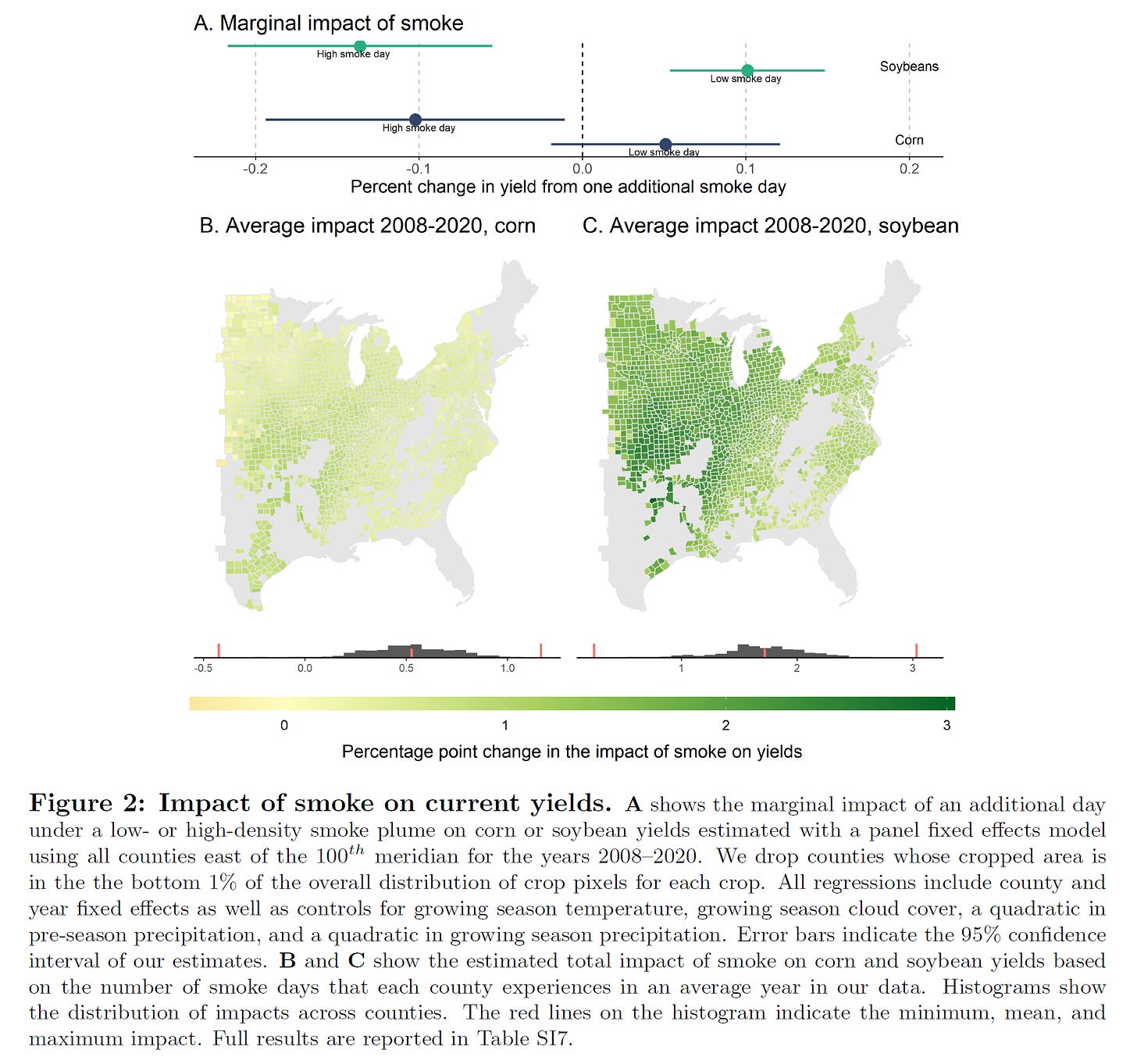
At present, the worst smoke is on the East Coast, but the cornbelt is also experiencing smoky air.
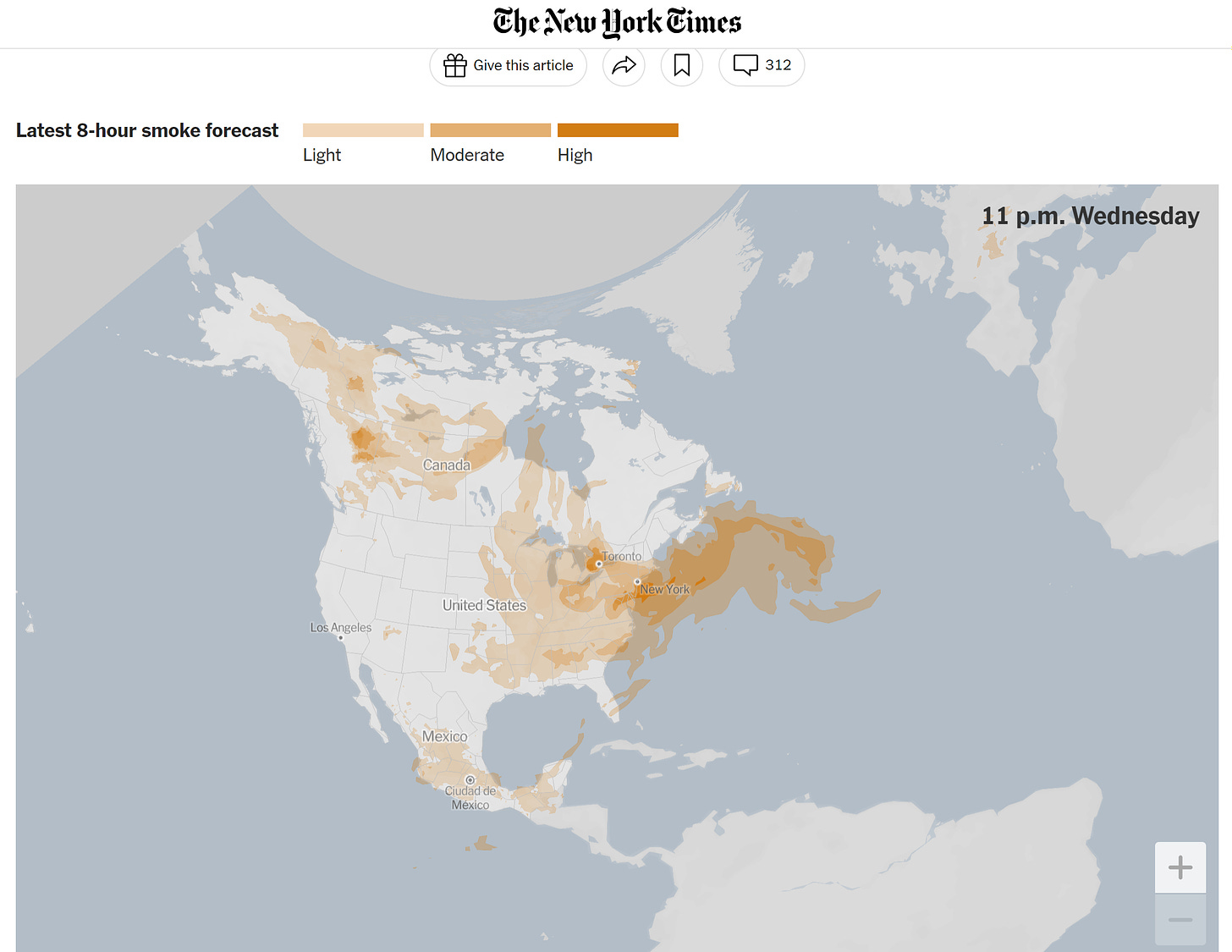
2. It's silly to debate whether the fires are caused by climate change.
I have addressed this one before: Did Climate Change Cause the Wildfires?
Here's what I wrote then
Models of climate change predict an increase in weather extremes, including rain, which causes vegetation to grow, and heat, which dries out forests. Both these factors make fires larger and more ferocious than they otherwise would be. In short, climate change is a cause of wildfire frequency, size and ferocity.
Climate change makes big fires more likely, just like driving drunk makes getting in an accident more likely. It's possible this fire would have happened without climate change like it's possible a pathological drunk driver gets in an accident for a reason other than drunkenness.
Zeke Hausfather has a useful Twitter thread on whether climate change models project more fires in Quebec.
Like much of the world, Quebec was significantly warmer than usual in the first quarter of this year. (California is one of the few places on the globe that was cooler than usual during that period.)
3. Breathing smoke is bad for health
In this NBER working paper, Sam Heft-Neal and co-authors show that California emergency department visits for asthma, chronic obstructive pulmonary disease, and cough all increase by 30-110% in the week after an extreme smoke day. Even low levels of smoke significantly increase ED visits for respiratory issues.
In short, smoky air is bad for your lungs. This Twitter thread from Marshall Burke summarizes the evidence. (Marshall is one of the co-authors on the aforementioned NBER paper.)
Even though ED visits for respiratory issues increase after an extreme smoke day, total ED visits decrease because people stay home and therefore don't injure themselves in car accidents, playing sports, or other activities. The reductions in ED visits are disproportionately from less insured populations.
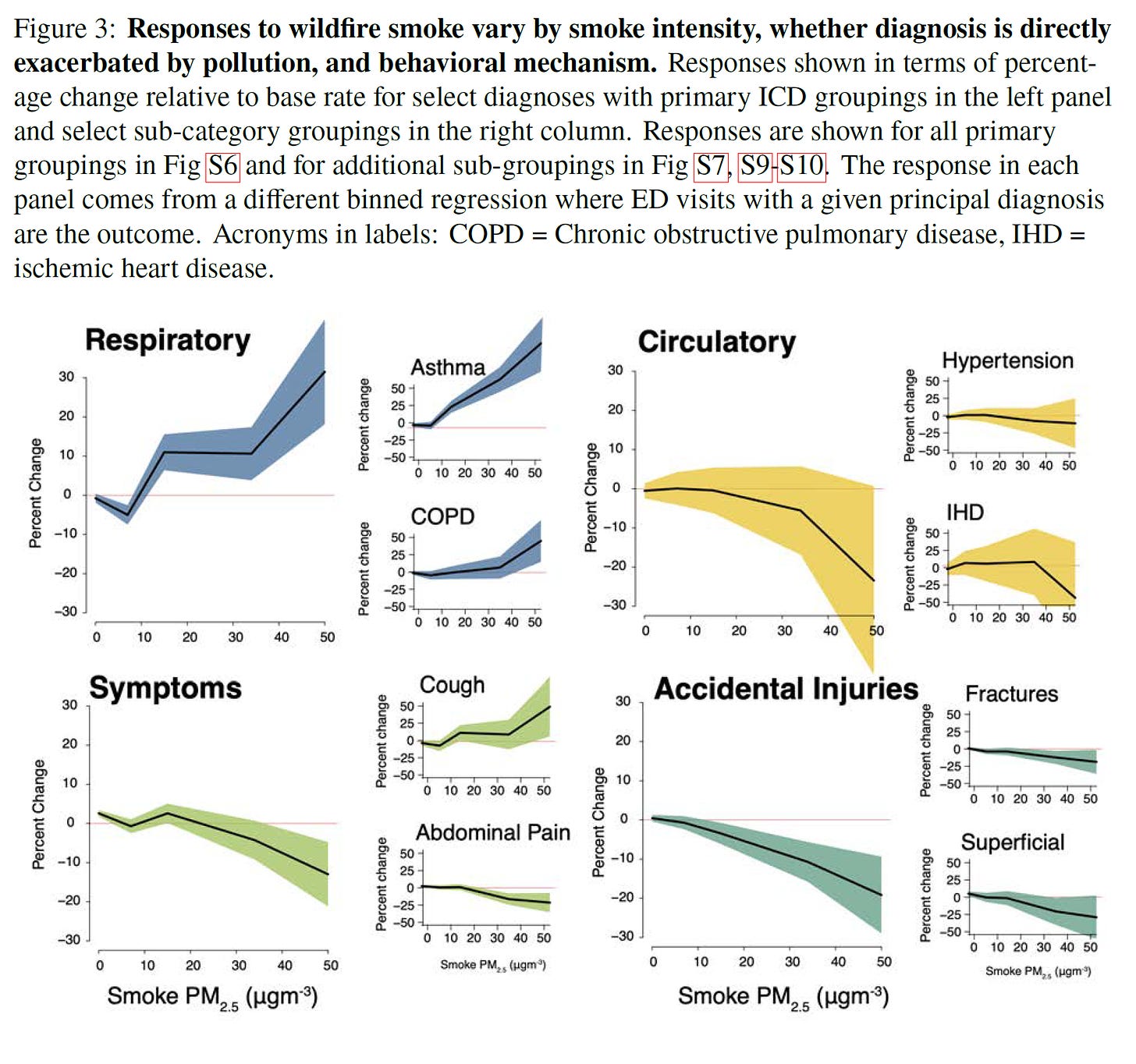
Update: Here’s a great 24 minute lecture on how bad air pollution is for your health.
or, if you prefer, here’s a 7 minute video.
Finally, spare a thought for those in Quebec and other parts of Canada affected directly by the fires. So far, about 10,000 people have been forced from their homes in Quebec.
Postscript: In the past couple of weeks, I was interviewed on two different podcasts. I enjoyed them very much.
1. Discovering Academia. Brent Valentine and Keller Kramer are enterprising UCD undergraduate students who started this excellent podcast to learn and share more about what research faculty in a university do. We talked about biofuels, environmental technology and the future of AI and Ag Tech.
2. Future of Agriculture. Tim Hammerich host a podcast on agriculture with a focus on Ag Tech. We talked about data and research, and my process for writing Ag Data News.



